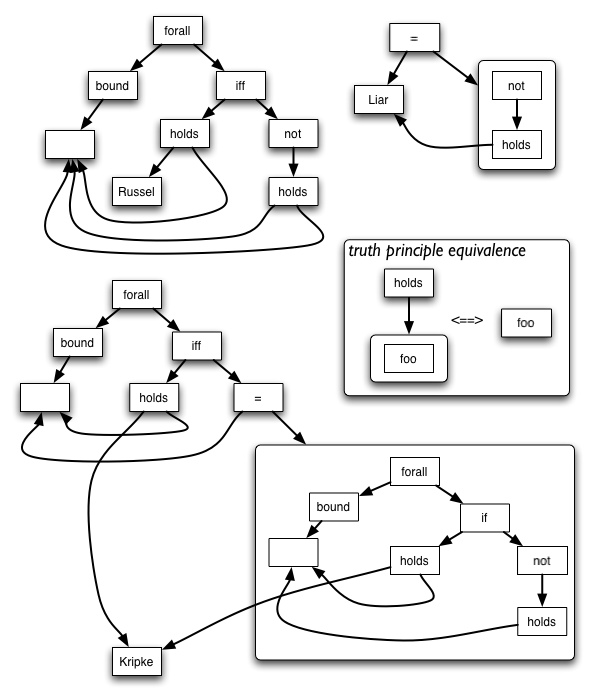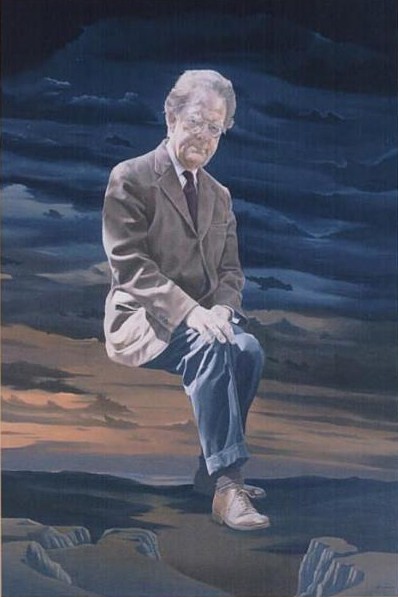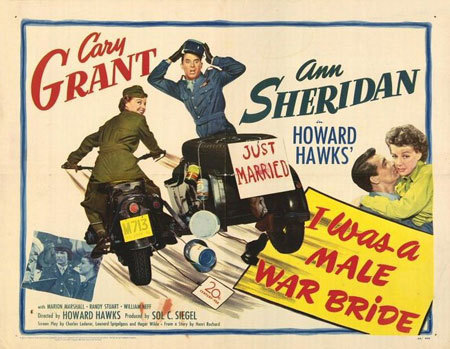In an upcoming post on “Frye and Music,” Bob Denham finds, not surprisingly, that Frye’s far and away favorite composers are Bach and Mozart. But there are other composers he admired and learned to play for various good reasons. Here is one of them.
Daily Archives: September 12, 2009
Adamson and Chrusch: “Both/And”

This exchange in the Comments between Clayton Chrusch and Joe Adamson regarding Joe’s Jacob and the Angel post deserves highlighting.
Clayton Chrusch Says:
September 11th, 2009 at 5:40 pm e
I’ve been following along the podcast of Calvin’s Institutes made available by Princeton Theological Seminary, and though Calvin has little to do with Frye, I’m struck by his use of both/and formulations. Especially in his idea that in any human action, there is a double cause – human will and God’s will.
It’s hard not to see this kind of formulation as sinister and intellectually illegitimate when it’s being used to to justify the ways of a rather sinister god who decides before any sin and before the foundation of the world who would be saved and who would be damned.
Frye was certainly consistent in his both/and approach. Fearful Symmetry describes a kind of human freedom that is both free and a working out of an innate pattern (not that different from Calvin, come to think of it). Are these paradoxes illegitimate, or are they just “fudge factors” awaiting further conceptual clarification, or are they actually the most precise way of articulating some realities?
Joe Adamson Says:
September 12th, 2009 at 10:44 am e
Ouch, Calvin? Well, the paradox in Frye seems very different from Calvin’s. Frye describes it paradoxically and in different ways because perhaps there is no other way of talking about it, so I don’t see how a book on logic is going to help you out here. Frye is talking about the relationship between human creativity and an otherness of consciousness or spirit, Reality, Nature, something uncreated, something coming from elsewhere, the Logos, the Word, or the “order of words” that is our literary and cultural heritage . . . It is perhaps a paradox like Eliot’s originality/individual talent vs. tradition. How else do you describe the relationship between the individual and the greater Reality he keeps running up against, whatever that reality is? “The Word and Spirit chapter” in Words with Power addresses the issue, where it is described in more interpenetrative terms: since the word and spirit go in both directions: the spirit that descends in Acts, when the Word ascends, allows for a human spiritual response to the Word, and there is the necessity of a similar spiritual response to a secular scripture, that is, literature, a human initiative, man’s revelation to man.
Oscar Wilde Says, June 20th, 1890:
The way of paradoxes is the way of truth. To test Reality we must see it on the tight-rope. When the Verities become acrobats we can judge them.
Matthew Griffin: Influence Without Anxiety

In his first guest blogging appearance, Matthew Griffin considers the influence Frye has had beyond the academic sphere upon novelists and poets.
While much of the discussion on this blog has revolved around how Frye has been an influence on other critics, I think it also worth remembering his potent effect on novelists and poets as well. A reflection on what it is to write and to think about literature that has been formative for me is Robert Kroetsch’s essay, “Learning the Hero from Northrop Frye” (It’s perhaps easiest to find in The Lovely Treachery of Words: Essays Selected and New. Don Mills: Oxford, 1989. 151-162.) While we’d do well to remember an axiom from the Polemical Introduction, that the author “has a peculiar interest, but not a peculiar authority” as a critic of the author’s own work (CW 29: 7), Kroetsch writes that it was an encounter with Frye’s thought “that exhausted me into language” (151). He describes giving a seminar on Milton, using the just published Anatomy of Criticism as his “critical starting point,” only to be asked what the ideas therein were all about (154). Kroetsch describes his answer as follows:
I began, in answering that request, to talk about the hero, the nature of the hero, in literature, in the modern world, in my Canadian world, and in a way I haven’t stopped, and here, today, thirty years later, I’m still giving the report, though now Northrop Frye himself has become the hero under discussion, a peculiarly Canadian hero, in a modern world that has assigned to critics and theorists a hero’s many tasks. We live at a time when the young critic as tram faces the uncomfortable fate of becoming the old critic as god. (154)
Kroetsch’s essay marvels at just what influence Kroetsch has had on Canadian writing in particular, before finally concluding of Frye, that in “his collected criticism, he locates the poetry of our unlocatable poem. In talking about that poem, he becomes our epic poet. Grazie” (161).
Perhaps in this idea is fodder for our own reflections about how we might relax our own anxieties of influence, and look to see Frye’s impact upon writers beyond the sphere of criticism proper?
Today in the Frye Diaries, 12 September

1942: A quite long entry, reflecting on various aspects of civilian life during wartime, including “fascist” tendencies within apparently healthy democracies.
[105] Down to collect Helen & we went to downtown Diana’s [coffee shop, 187 Yonge Street]: absolutely jammed with females. I never knew there were so many women in the world, or so few men. I felt a little like a stud: if I’d been in uniform I’d have felt completely so. There’s a curious sensation about being surrounded by so much female flesh that is hard to analyze. Also on the street, but not quite so bad there. If the war lasts long enough they may start drafting civilian males for stud duty: they’re very near it in Germany now and we generally do what Germany does a year or so later. I’d be category E for the Army, but I’m afraid 1-A for studding. The sendentary are the most sex-ridden of all men, despite a popular superstition to the contrary largely invented by them… A cheap & lousy bookstore has opened on Yonge & Charles. I went all through it to the back, where they had a shelf of semi-erotic books on what they refer to as “sex harmony” and emerged with a Hanford Milton handbook for 15 cents. It’s about time to read it.
[107] I wonder how far-reaching the stopping of travel & touring will be: an enoromous amount of our economy was tied up with it: in the Maritimes, for instance, the roads were a solid line of piss-and-postcard places between villages, where they thickened. Unsound economy, certainly, but wiping it out is a revolution of no small proportions. The effect will be healthiest in Quebec, I think, which was freezing into a Maria Chapdelaine pose of ye olde picturesque rutting & rooting queynte paysan, with of course the Fascist Catholic twist — the Vichious circle of church, pub, field & kitchen.
[108] … Friends of democracy are seldom frank about its failings & I don’t know if anyone has researched the persistence in it of the Aristedes complex. The great heart of the people can put up with conscientious, honest, and efficient government just so long and then they arise in their wrath and demand some form of picturesque graft or colorful tyranny. Recently the Socialist mayor of Milwaukee, who had served his city faithfully for years, was defeated by an obviously incompetent crooner. Now that “Glass Key” picture showed that it’s gangsters, not saints, who attract fanatical loyalty and are impossible finally to crush. Cf. the frank support of child labor in “The Great McGinty“: another film along much the same lines. As compared with the intellectualilzed & comparatively superficial analysis of a Fascist type of Citizen Kane, I think that’s the most important thing for the films to do.